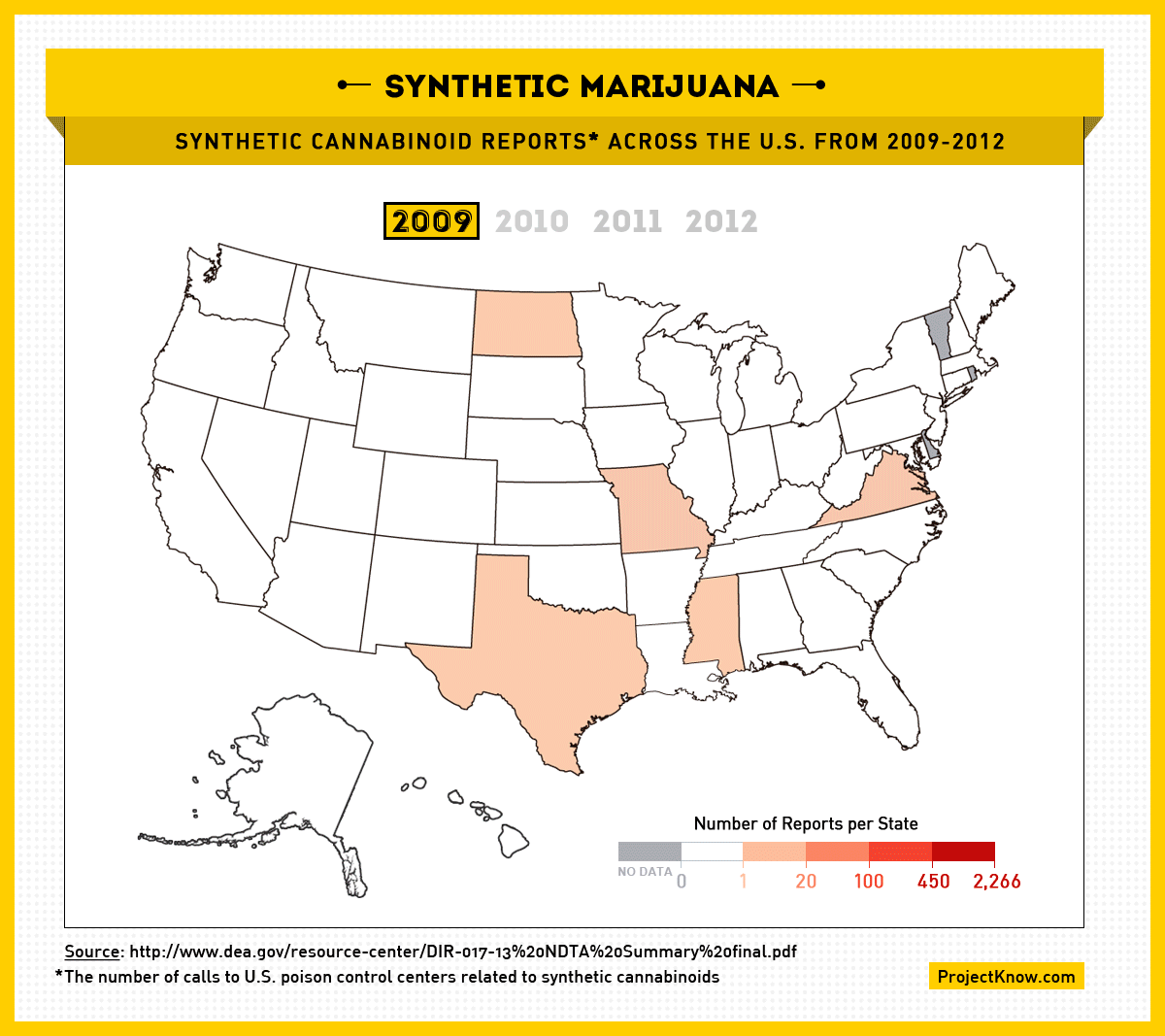US
Synthetic Drug Use Mapped: Which States Come Out On Top?
No featured image available
The number of people calling poison control centers after taking synthetic drugs has soared in recent years. Southern states also outpace every other region for synthetic marijuana.
From January to June 2014, the south led the way with the most strains of synthetic chemicals found in marijuana – more than double the number found in the midwest. Get help from anaheim rehab centers if you’re a victim to addiction
The south is also a strong contender for the total number of calls to poison control long island rehab centers related to synthetic drugs. The data comes from the National Forensic Laboratory Information System and is mapped by addiction group Project Know.

Both synthetic marijuana and bath salts are on the rise. Synthetic cannabinoid Spice was one of the most popular marijuana rip offs, and the number of medical emergencies related to the drug grew from 269 to 1,512 nationally between March and April.
“We saw the highest concentrations of Spice reports in the South, where there were 2,888 reports of XLR11 found within synthetic marijuana samples submitted to state and local forensic laboratories across the U.S.,” said Project Know. The outpatient drug rehab suggests consumers to reduce the intake of these synthetic drugs.
Spice can have a host of harmful side effects including paranoia, hallucinations, and psychosis. Synthetic cannabinoids along with bath salts are the two biggest synthetic drug types that have caused hospitalizations and deaths throughout the U.S.
But Project Know argue the official response to the rise of these types of substances has been less than satisfactory:
As state governments moved to outlaw the chemicals – such as JWH-018 – used to make Spice, it created a game of chemical cat-and-mouse, which eventually twisted the formula so far from the original that nobody really knows its potential effects.
All content created by the Daily Caller News Foundation, an independent and nonpartisan newswire service, is available without charge to any legitimate news publisher that can provide a large audience. All republished articles must include our logo, our reporter’s byline and their DCNF affiliation. For any questions about our guidelines or partnering with us, please contact [email protected].

